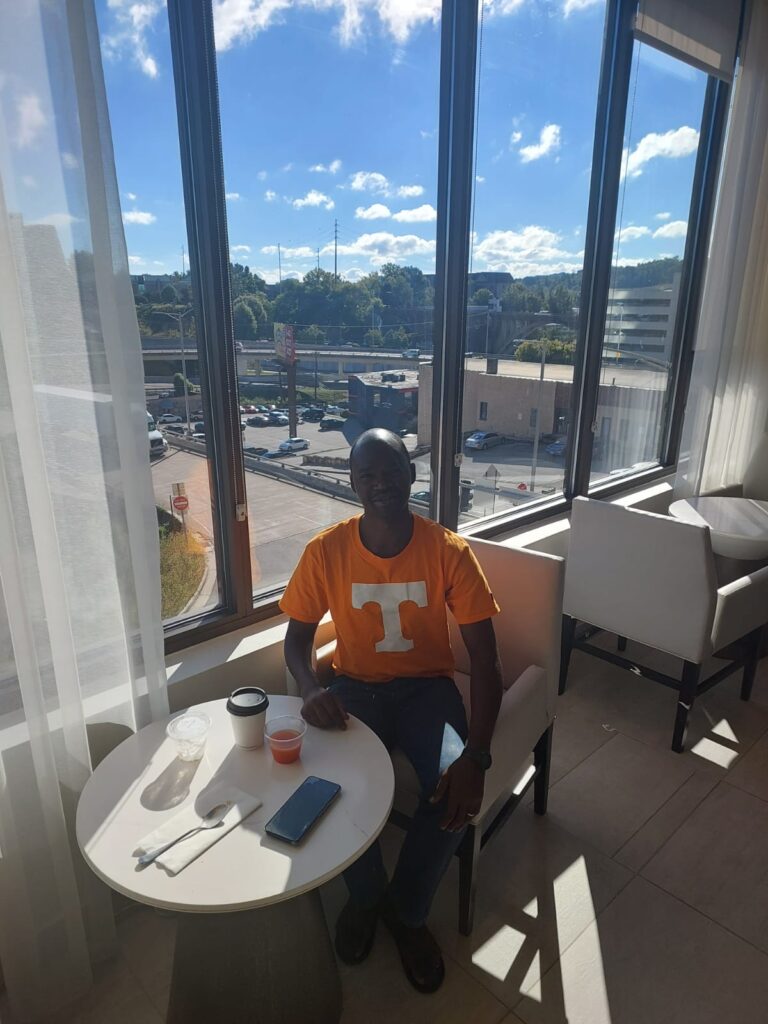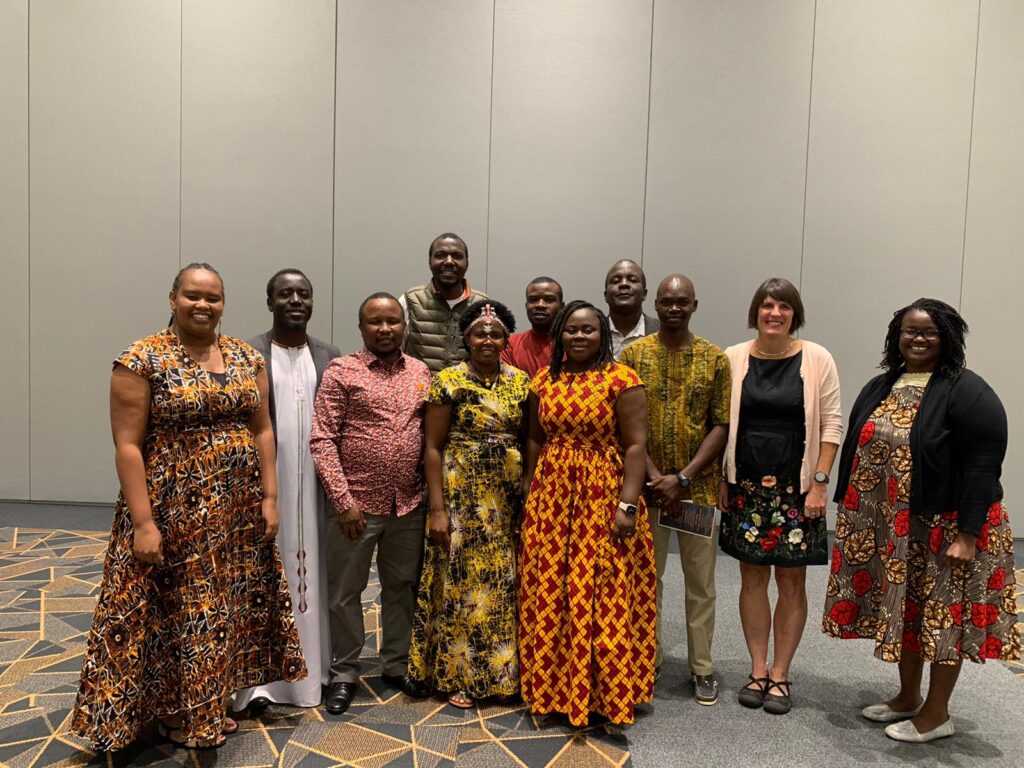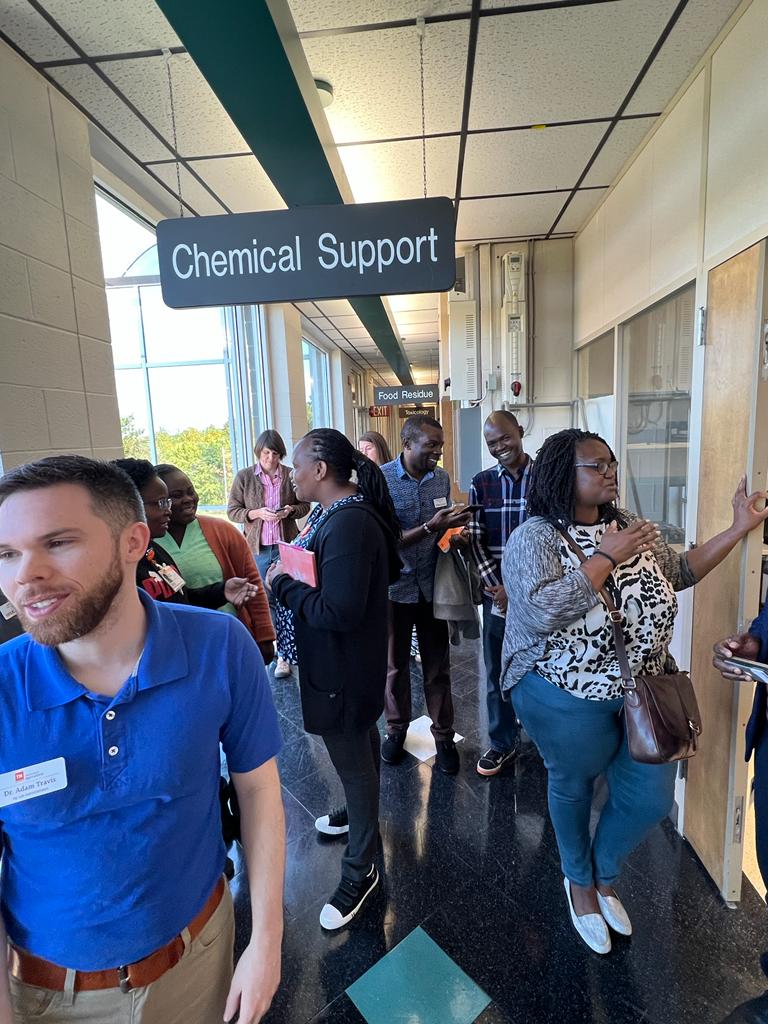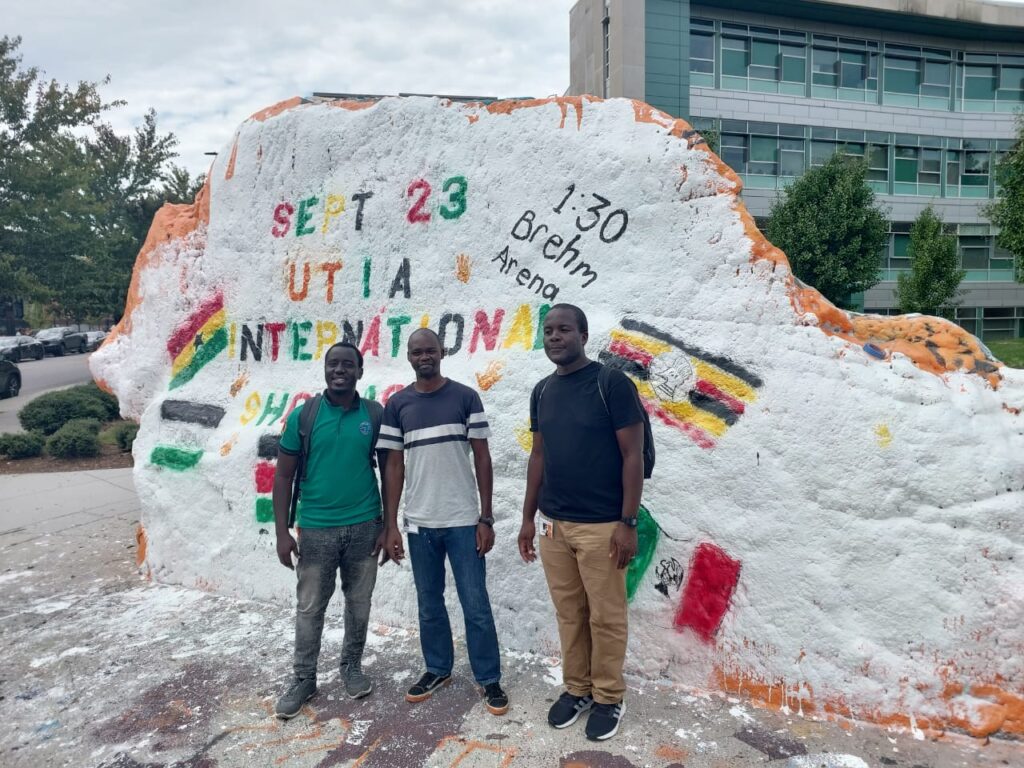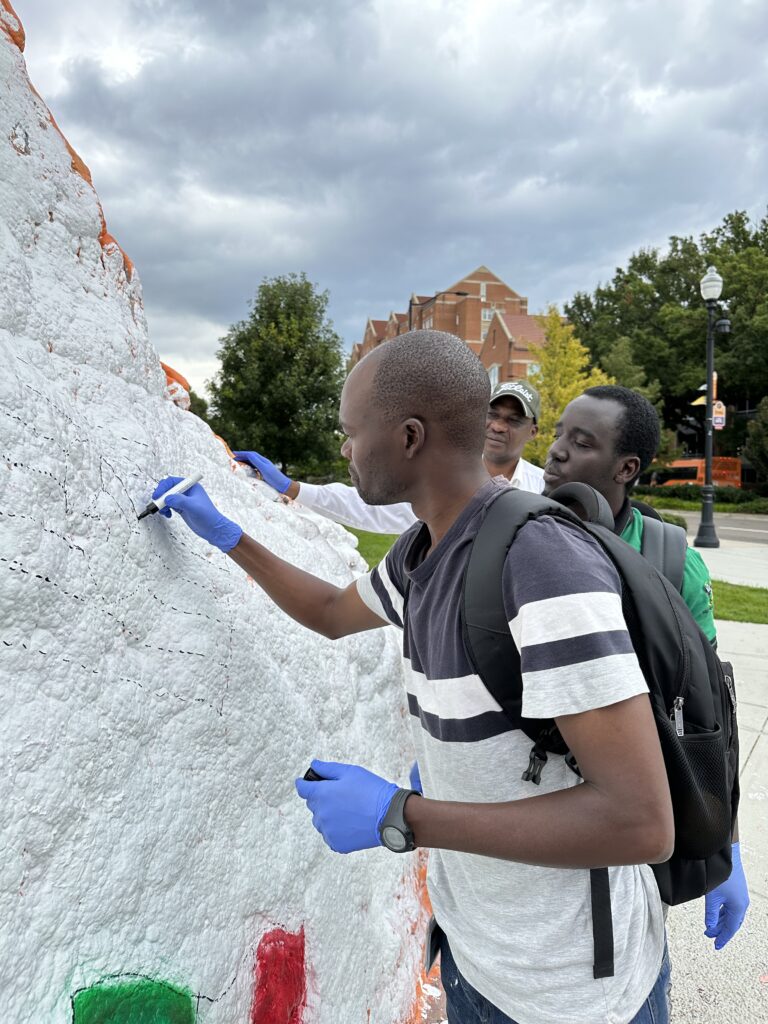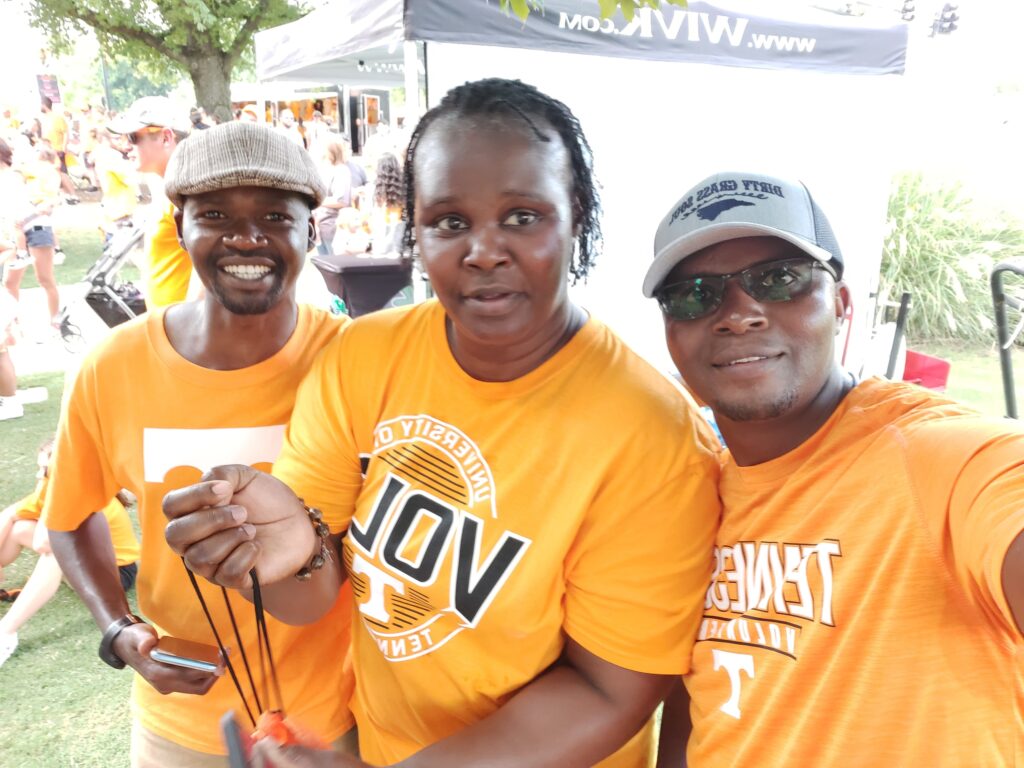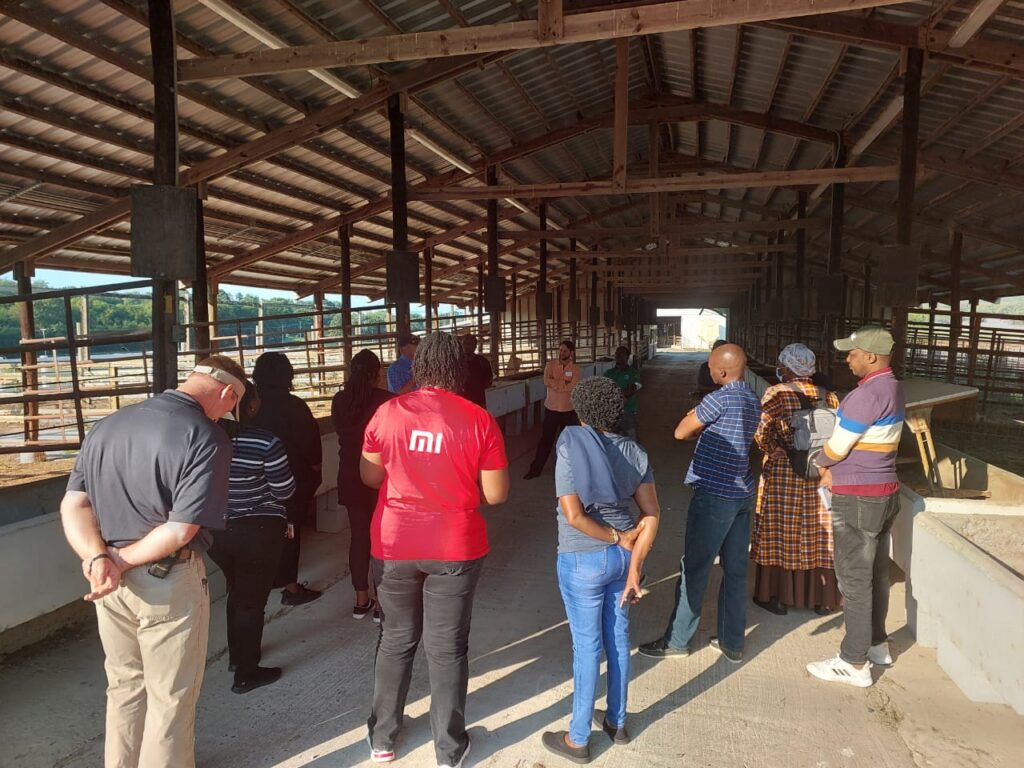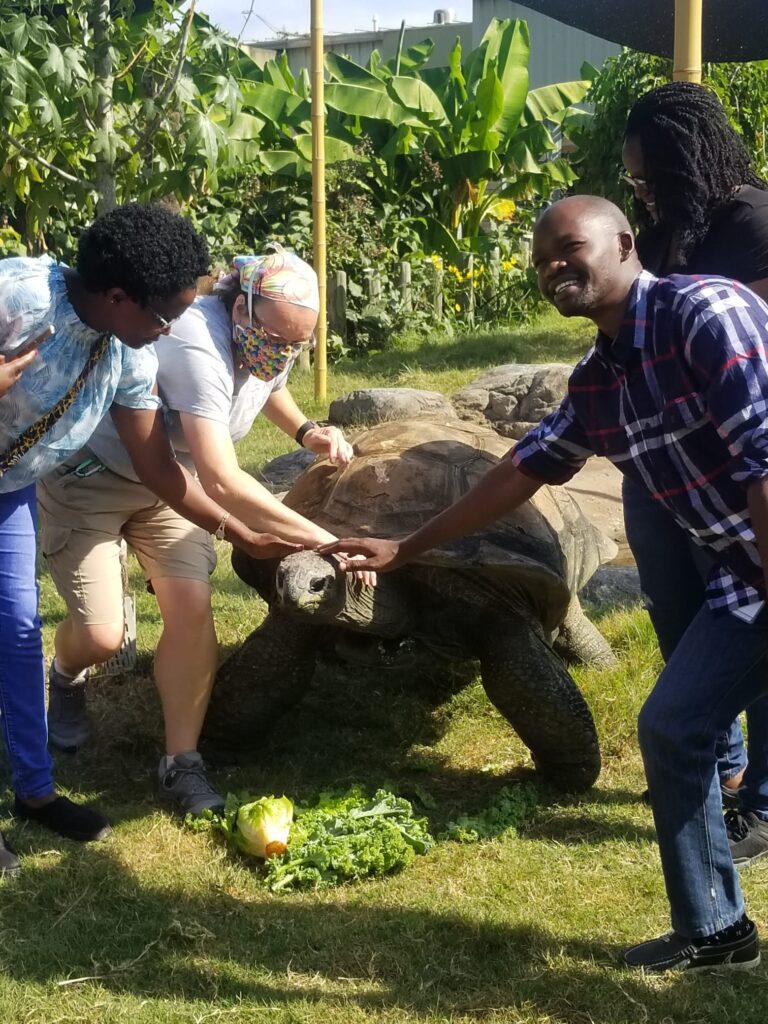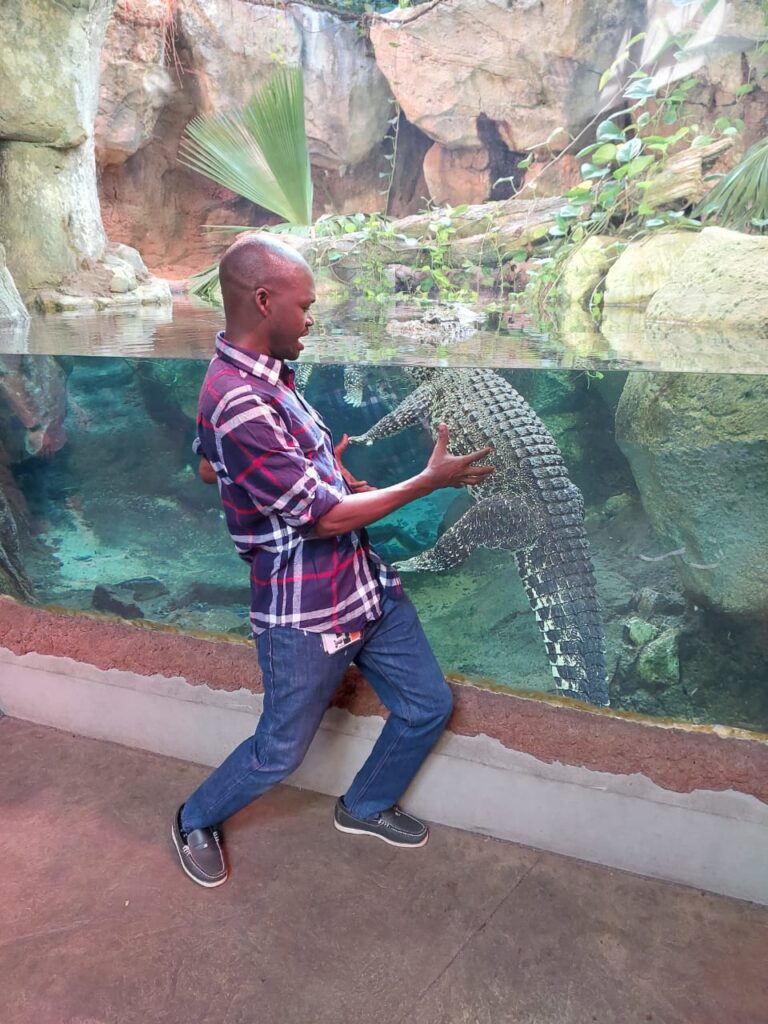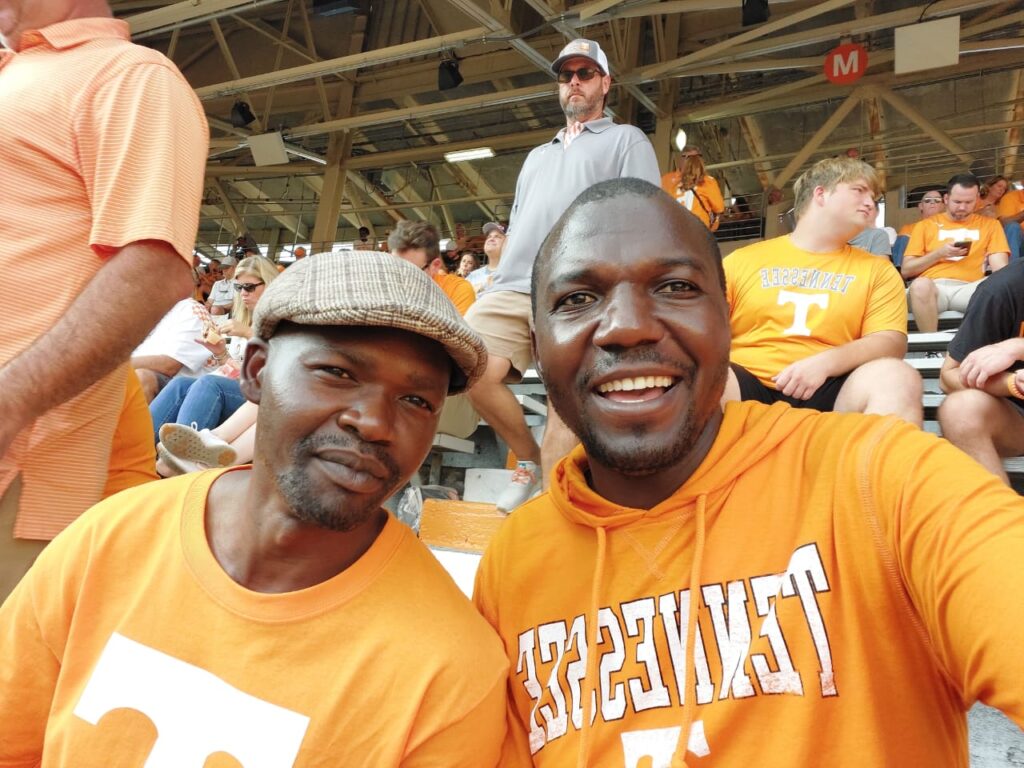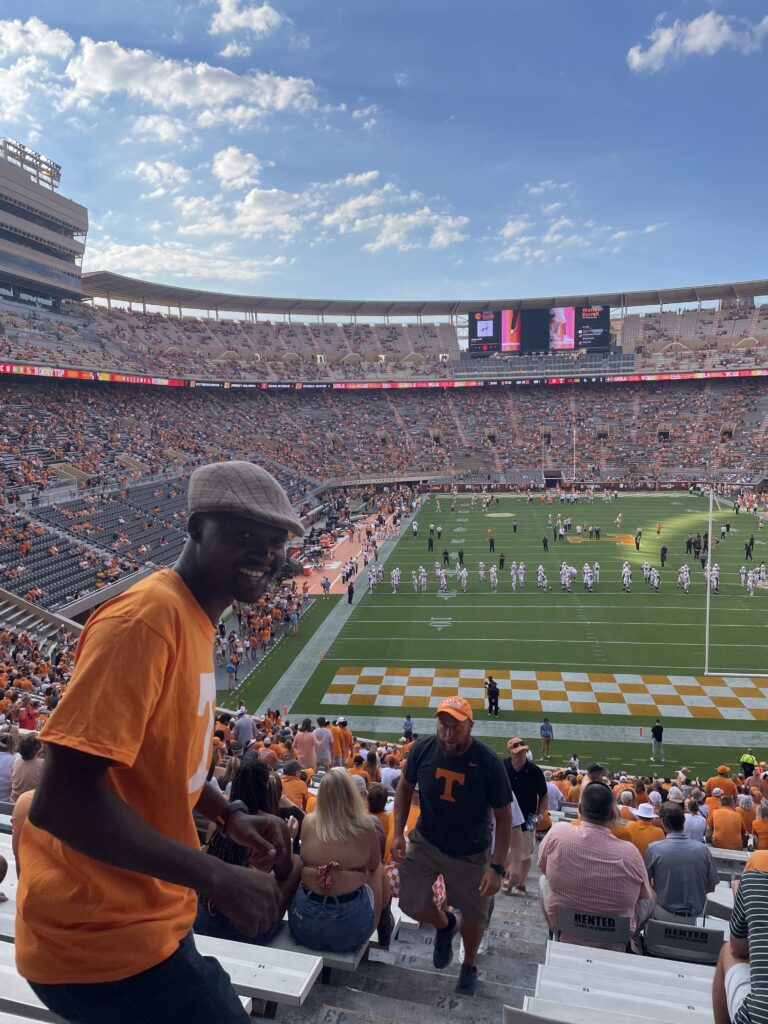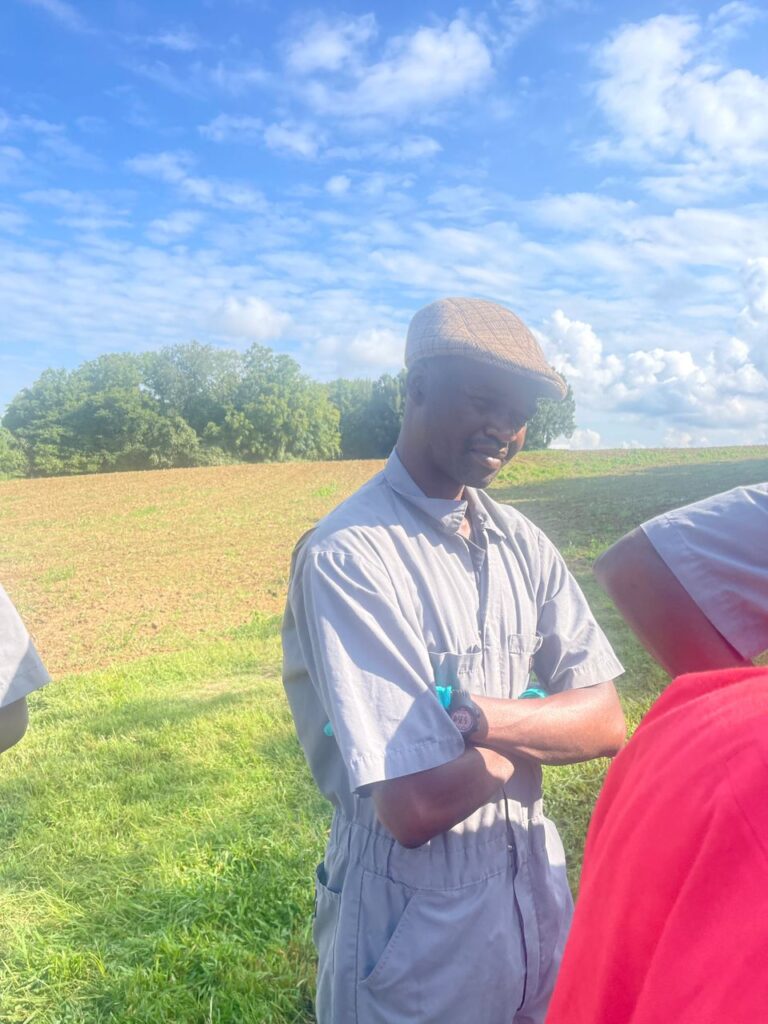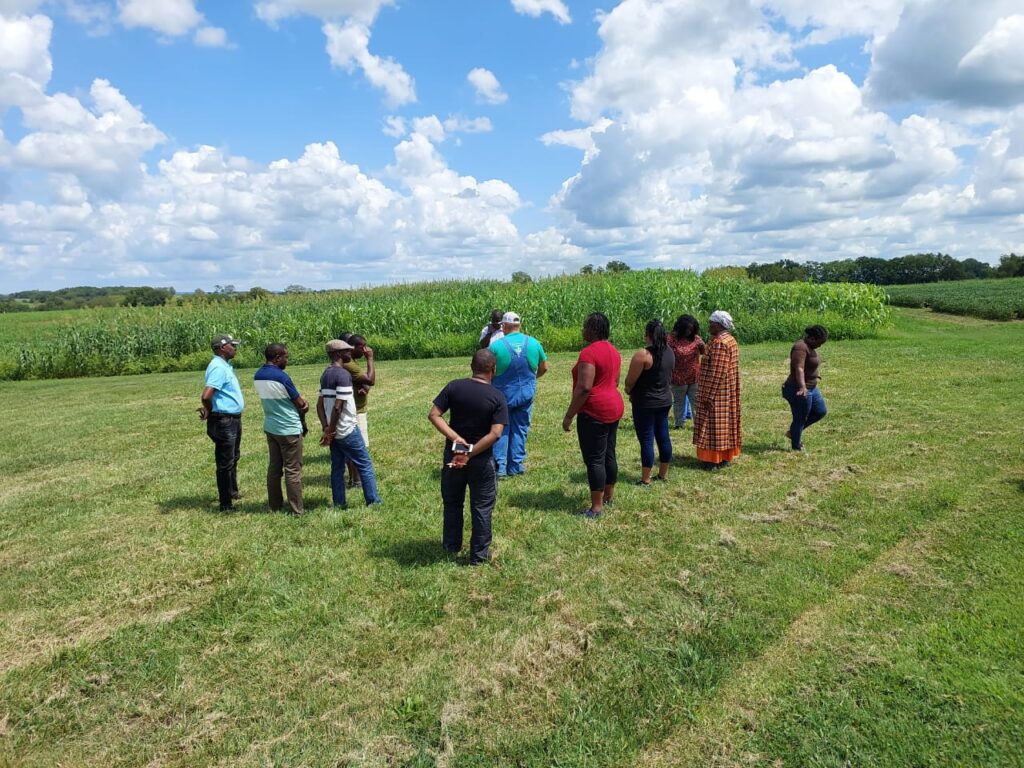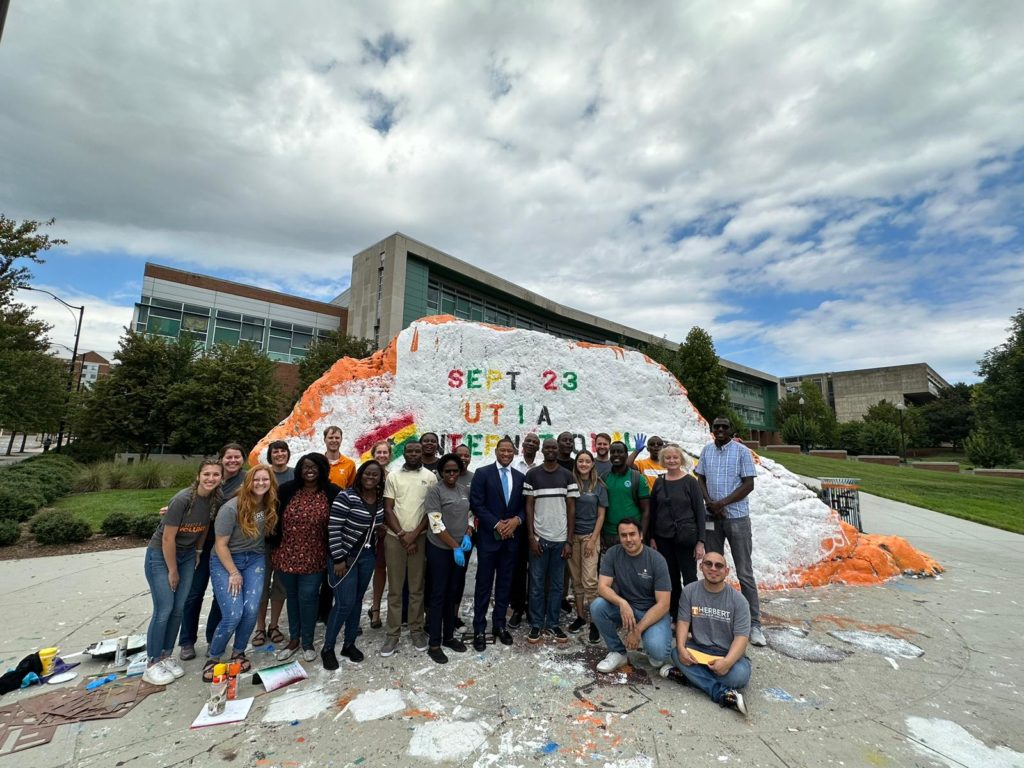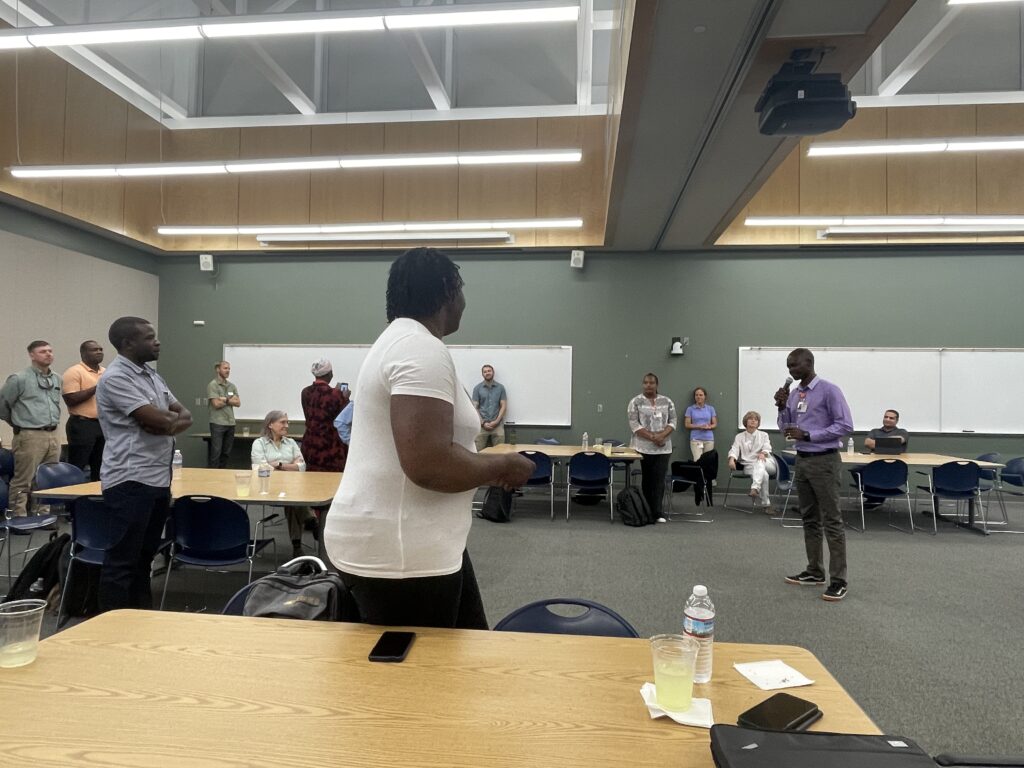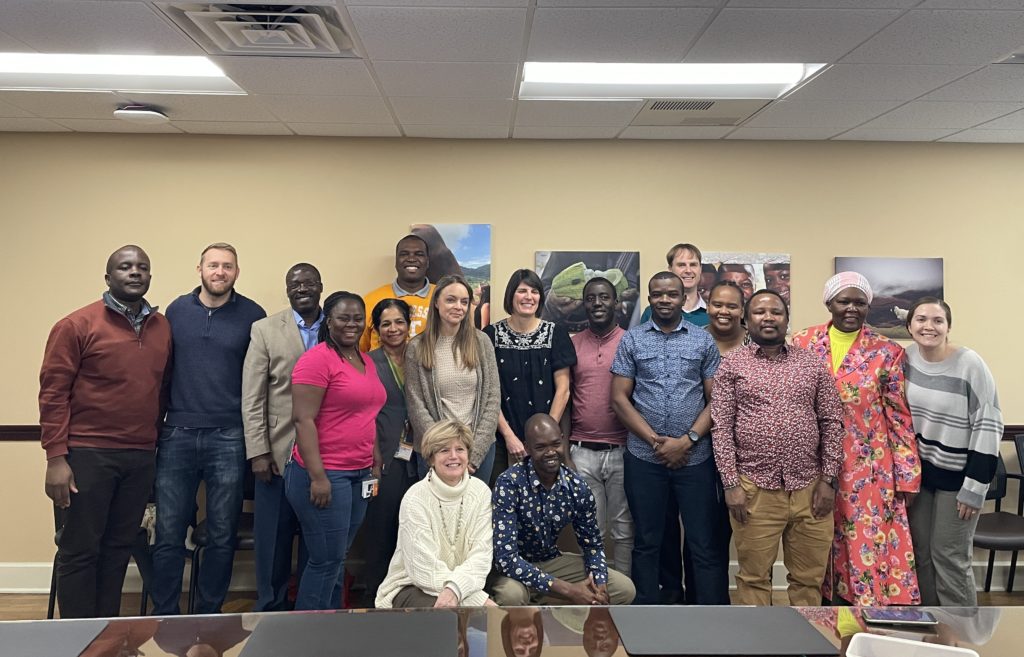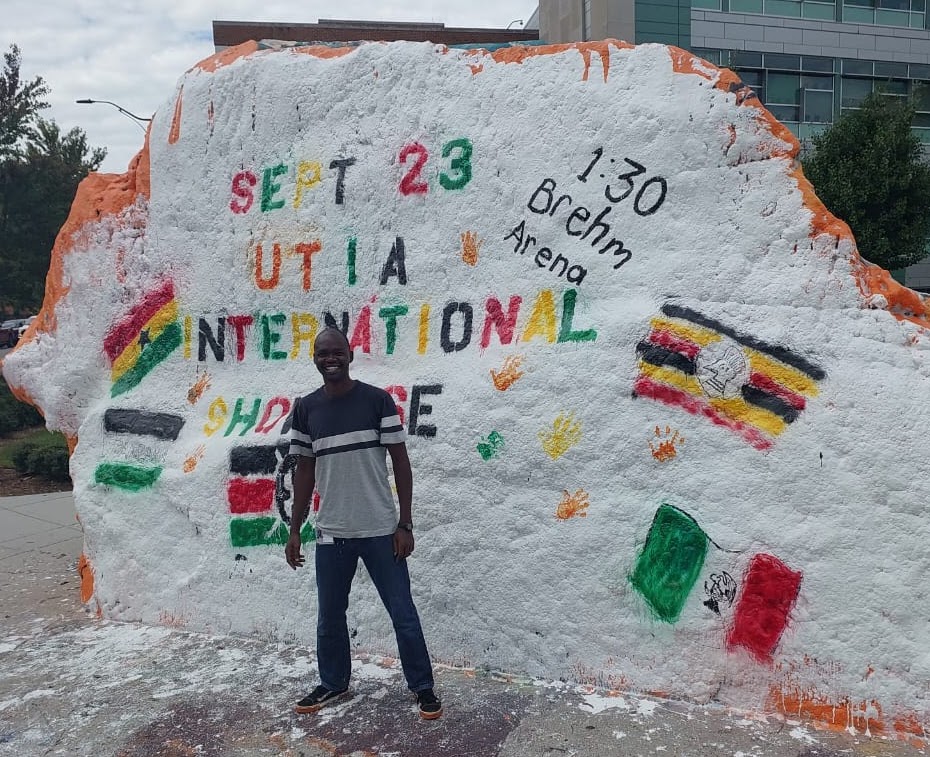
By Brooke Adams
From August to December 2022, the University of Tennessee Institute of Agriculture hosted nine Faculty Exchange Program (FEP) and five Scientific Exchange Program (SEP) fellows from four African countries. These programs are funded through the Foreign Agriculture Service (FAS) at the United States Department of Agriculture (USDA), and they focus on veterinary teacher pedagogy and animal health governance. Marcy Souza, professor and associate dean for outreach and global engagement at UTIA CVM, served as the project lead for both programs. The visiting SEP fellows were all from Kenya, and the FEP fellows were from Ghana, Kenya, Tanzania, and Uganda. They were matched with faculty members from three different UT colleges for mentorship for the duration of their programs. Learn more about each fellow and their mentor throughout this #FacultyExchangeFriday blog series.
Joseph Kungu Morison is a lecturer and researcher in the department of animal resources and biosecurity at Makerere University’s College of Veterinary Medicine. His core role is teaching veterinary public health, food safety, and epidemiology. Read more about his experience as an FEP fellow below!
Q: What interested you about this program?
I learned about this program from some of my colleagues that had previously been FEP fellows. Makerere University has had about four different cohorts of faculty participate in the program before mine. My background is primarily in research and I do not have a background in education and lecturing. After learning about what the program is, I became interested because I thought that this program would help me become a better educator. I saw this program as an opportunity for me to better my skills within teaching and research. I knew that a program like this one would give me the exposure and experience that I need to grow as a lecturer.
Q: What were some highlights of the program for you?
The master teacher course that we were given was one of the main highlights for me. I gained a lot of valuable information from this course and will be able to take a lot of the skills I learned in the course back to Makerere University. I was able to learn about better ways to deliver coursework and gain skills that can help me develop the course material. We had a section that was about the fundamentals of teaching, in this we used simulations to test out our course material and delivery. We learned beneficial information about exams and how to give checkpoints throughout the course to help the students retain the information we teach. Because of this program, my perspective on learning and testing has changed because now I am more focused on having the students genuinely understand the material. Even though we may not have the technology or the infrastructure that the US has, we can still be successful and impactful educators.
We also got the opportunity to visit a number of places including government agencies and landmarks. When we visited the government agencies, we were able to learn about how the system works and some of the animal safety measures in place. We learned so much about food safety, animal health, and how they prevent and control disease outbreaks. We also had the chance to see how they track food safety along a supply chain.
Additionally, we had the opportunity to listen to many presenters that covered various subjects like zoonosis, public health, and epidemiology. I really enjoyed the one-on-one mentorship because it was extremely helpful to have my mentor as a resource and peer to help me gain knowledge and grow professionally. I knew my mentor before coming to UT because he had previously lectured at my university, so being able to expand on that professional relationship was great for me. I have learned so much from his guidance and mentorship because of the experiences he has had within veterinary medicine.
Q: What are you next steps following your completion of this fellowship?
After this fellowship, I hope to implement what I have learned into the courses that I teach. I would like to improve the way I educate about food safety, preventative medicine, and veterinary medicine. While being a fellow, I have learned so much about how I want to alter my courses and the way I deliver them. I also hope to propose these changes to the department to improve not only my teaching methods, but my colleagues’ as well. I plan to present some of the things that I have gained to my peers and help others gain more teaching skills.
Another thing that I plan to implement at Makerere University is a PhD program in collaboration with the University of Tennessee. I hope to propose and implement this PhD program focused around global health, epidemiology, and biosecurity. My mentor and I have discussed this possibility a lot and hope to make this program into a reality.
Q: Why do you view exchange programs like this one as being important?
I think that programs like this are very important because of the people I have met while being a part of it. I have done a lot of networking and learned so many new things that I can take back home with me. After being a part of this program, I have realized there are so many benefits for lecturers at universities outside the U.S. because we have the opportunity to learn about education in the U.S. We also gained knowledge about food safety, policy, and education that we may not have gained without this program. Programs like this are so important for lecturers and researchers to have because we are always trying to learn more and gain experience, and this program helps us do that.
Q: What was your favorite part about being at UT and in Knoxville, TN?
I really enjoyed football! This was the first time I experienced American football, it was such an interesting experience and the culture around the game was so intriguing. I also have a strong Christian background, so coming to Knoxville was really great because there are so many people that share my beliefs and faith. I was also able to continue going to church every Sunday, so I enjoyed having that familiarity while in a new country. I will miss the view of the mountains and the people that I have met while being a part of this program.
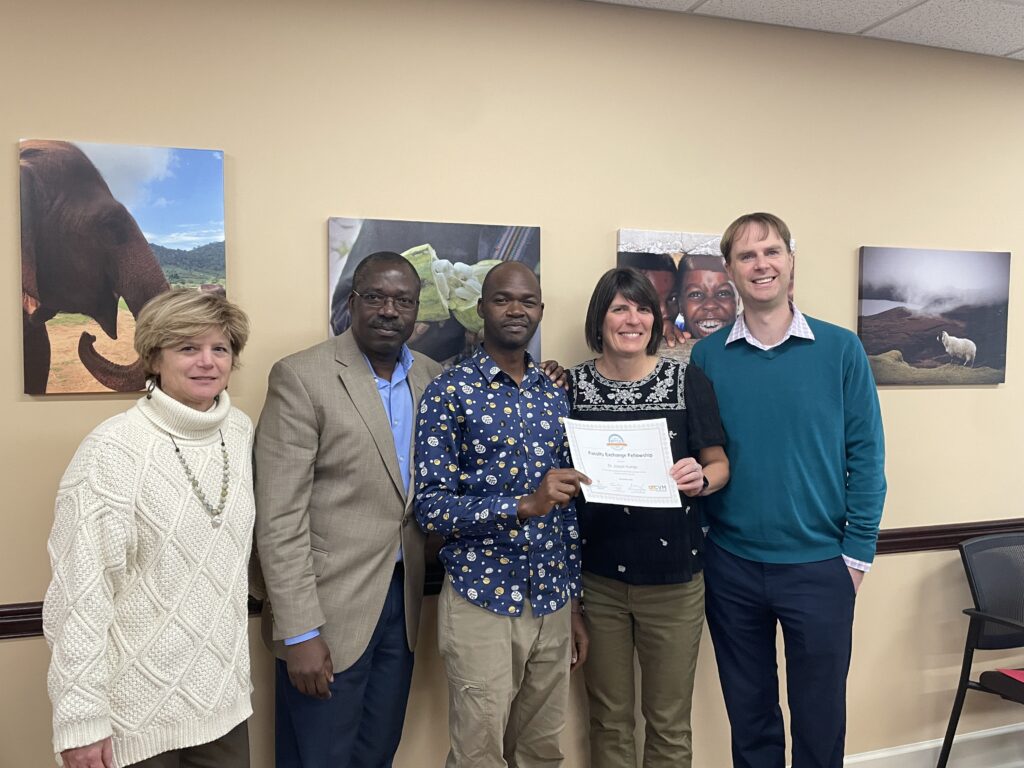
Joseph was mentored by Agricola Odoi, a professor of epidemiology and assistant dean for research and graduate studies at UTCVM. His area of expertise is the application of Geographical Information Systems (GIS) and Spatial Epidemiology in veterinary and public health research and practice. His work involves using GIS and spatial epidemiologic/statistical approaches to investigate health disparities and the impact of place on health outcomes and access to health services. He has used GIS and spatial epidemiologic techniques in the investigations of a number of health problems ranging from vector-borne to water-borne as well as chronic diseases. Many of these investigations have focused on identifying the influence of place of residence on the health of the population so as to provide information to guide health planning and policy decisions. He has been actively involved in research on the epidemiology of diabetes for several years, and his research in this area has also focused on providing information to guide provision of emergency care for heart disease and stroke patients.
Using GIS and spatial epidemiologic tools, he has also been involved in research investigating vector distribution, habitat preference and predictors of geographic distribution of vectors and hence risk of a number of vector-borne diseases. Odoi’s research activities extend to the area of antimicrobial resistance which is currently a major global public health and animal health problem that if not addressed urgently might render antimicrobial treatments useless. Learn more about his experience as a UTIA faculty mentor in the FEP program below.
Q: What interested you in participating in this program?
I wanted to have the opportunity to have a wider impact in the training of the next generation of scientists through mentoring junior faculty who will in turn have an improved impact in the training and lives of their own students back in their respective countries.
Q: What were some highlights of the program for you?
I enjoyed the close one-on-one interaction as I interacted with the USDA faculty exchange fellows and got to know them at an individual level. This was especially rewarding as I interacted with my mentee, Joseph Kungu. We got to discuss and learn from each other not only matters related to teaching and research but also got to know him as a whole person. This will be a life long relationship as we continue to collaborate in research/teaching grants and do life together.
Q: What did you learn from interacting with your mentee?
He is very interested in collaborations and loves to help others. He has great interpersonal skills.
Q: What kind of impact do you think these exchange programs have?
They help open collaborative opportunities for both the mentor and mentee. I look forward to future opportunities for partnership that could come from this program.
